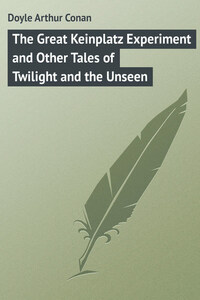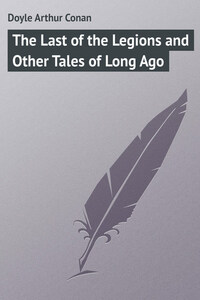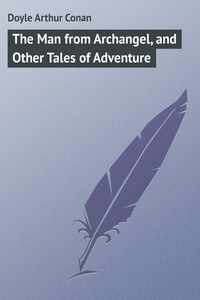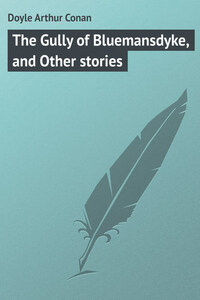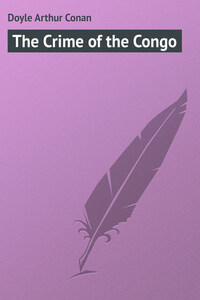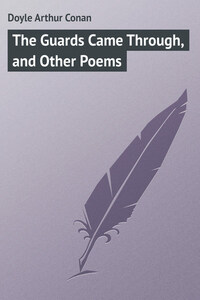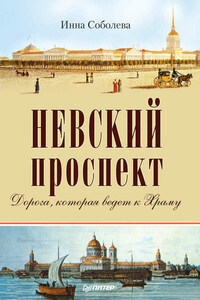Every one knows that Sir Dominick Holden, the famous Indian surgeon, made me his heir, and that his death changed me in an hour from a hard-working and impecunious medical man to a well-to-do landed proprietor. Many know also that there were at least five people between the inheritance and me, and that Sir Dominick's selection appeared to be altogether arbitrary and whimsical. I can assure them, however, that they are quite mistaken, and that, although I only knew Sir Dominick in the closing years of his life, there were none the less very real reasons why he should show his goodwill towards me. As a matter of fact, though I say it myself, no man ever did more for another than I did for my Indian uncle. I cannot expect the story to be believed, but it is so singular that I should feel that it was a breach of duty if I did not put it upon record – so here it is, and your belief or incredulity is your own affair.
Sir Dominick Holden, C.B., K.C.S.I., and I don't know what besides, was the most distinguished Indian surgeon of his day. In the Army originally, he afterwards settled down into civil practice in Bombay, and visited as a consultant every part of India. His name is best remembered in connection with the Oriental Hospital, which he founded and supported. The time came, however, when his iron constitution began to show signs of the long strain to which he had subjected it, and his brother practitioners (who were not, perhaps, entirely disinterested upon the point) were unanimous in recommending him to return to England. He held on so long as he could, but at last he developed nervous symptoms of a very pronounced character, and so came back, a broken man, to his native county of Wiltshire. He bought a considerable estate with an ancient manor-house upon the edge of Salisbury Plain, and devoted his old age to the study of Comparative Pathology, which had been his learned hobby all his life, and in which he was a foremost authority.
We of the family were, as may be imagined, much excited by the news of the return of this rich and childless uncle to England. On his part, although by no means exuberant in his hospitality, he showed some sense of his duty to his relations, and each of us in turn had an invitation to visit him. From the accounts of my cousins it appeared to be a melancholy business, and it was with mixed feelings that I at last received my own summons to appear at Rodenhurst. My wife was so carefully excluded in the invitation that my first impulse was to refuse it, but the interests of the children had to be considered, and so, with her consent, I set out one October afternoon upon my visit to Wiltshire, with little thought of what that visit was to entail.
My uncle's estate was situated where the arable land of the plains begins to swell upwards into the rounded chalk hills which are characteristic of the county. As I drove from Dinton Station in the waning light of that autumn day, I was impressed by the weird nature of the scenery. The few scattered cottages of the peasants were so dwarfed by the huge evidences of prehistoric life, that the present appeared to be a dream and the past to be the obtrusive and masterful reality. The road wound through the valleys, formed by a succession of grassy hills, and the summit of each was cut and carved into the most elaborate fortifications, some circular, and some square, but all on a scale which has defied the winds and the rains of many centuries. Some call them Roman and some British, but their true origin and the reasons for this particular tract of country being so interlaced with entrenchments have never been finally made clear. Here and there on the long, smooth, olive-coloured slopes there rose small rounded barrows or tumuli. Beneath them lie the cremated ashes of the race which cut so deeply into the hills, but their graves tell us nothing save that a jar full of dust represents the man who once laboured under the sun.
It was through this weird country that I approached my uncle's residence of Rodenhurst, and the house was, as I found, in due keeping with its surroundings. Two broken and weather-stained pillars, each surmounted by a mutilated heraldic emblem, flanked the entrance to a neglected drive. A cold wind whistled through the elms which lined it, and the air was full of the drifting leaves. At the far end, under the gloomy arch of trees, a single yellow lamp burned steadily. In the dim half-light of the coming night I saw a long, low building stretching out two irregular wings, with deep eaves, a sloping gambrel roof, and walls which were criss-crossed with timber balks in the fashion of the Tudors. The cheery light of a fire flickered in the broad, latticed window to the left of the low-porched door, and this, as it proved, marked the study of my uncle, for it was thither that I was led by his butler in order to make my host's acquaintance.
He was cowering over his fire, for the moist chill of an English autumn had set him shivering. His lamp was unlit, and I only saw the red glow of the embers beating upon a huge, craggy face, with a Red Indian nose and cheek, and deep furrows and seams from eye to chin, the sinister marks of hidden volcanic fires. He sprang up at my entrance with something of an old-world courtesy and welcomed me warmly to Rodenhurst. At the same time I was conscious, as the lamp was carried in, that it was a very critical pair of light-blue eyes which looked out at me from under shaggy eyebrows, like scouts beneath a bush, and that this outlandish uncle of mine was carefully reading off my character with all the ease of a practised observer and an experienced man of the world.
